Choose To Reuse
by Rianna Koppel, Co-op Sustainability Coordinator
At the Ashland Food Co-op, we are committed to becoming Zero Waste by 2030. Along the way, we’ve learned a lot about packaging and single-use at our store. Our owners care deeply about reducing plastic waste, and we do too!
Reusable Bags
At the co-op, we have many different bag options… So what's the best choice?
We offer plastic bags, paper bags, and reusable bags. There is a 2¢ charge for new plastic bags, and a 10¢ charge for new paper bags. These charges help to subsidize the costs of our reusable bags.
We offer two reusable options, both costing only 50¢! Our plastic bag is made from reused and recycled plastic. Our fabric bag is made from cotton by the company Royal Jute. 100% of the proceeds from Royal Jute go directly to Kiva, a nonprofit that finances micro-lending programs for women across the world. Every time you purchase or use one of these bags, it makes a real impact for the planet and people.
Since we introduced reusable bags in fall of 2018, we have sold over 16,000 of them to our awesome and very sustainable members. This has worked to reduce plastic too - we have ordered 100,000 less plastic produce bags than in 2018.
What About Compostable Bags?
Sometimes people ask, why don’t you use compostable bags like other grocery stores? This is a great question, with a complex answer.
There are many commercially compostable items out there - including our very own Co-op take-out containers. If you start reading the tiny font on various packaging, you will see that there are many packaged items that are compostable in industrial or commercial facilities.
Here’s the problem: we don’t have any industrial composting facilities in the state of Oregon that will take these kinds of materials.
In fact, every composting facility in Oregon came together to issue a statement on their refusal. They called it, “A Message From Composters Serving Oregon: Why We Don’t Want Compostable Packaging and Serviceware”. The company listed out nine reasons why it’s not a good idea, including the facts that these materials do not always break down, they introduce contaminants, and they cannot sell this compost to organic farmers.
You can read more about this statement in this NCRA article from March 2019.
What about straws made from avocado pits?
So what about bio-based products made from renewable materials like bamboo, corn, or avocado pits? No matter the material, it’s still a single-use straw. There is a financial impact as well - straws made from avocado pits costs a whopping 600% more than a single-use paper straw. I suggest trying a reusable stainless steel straw instead!
There’s another hidden cost to plastics made from materials like corn… the impact on the environment.
According to the Oregon Department of Environmental Quality’s study on Popular Packaging Attributes, bio-based disposables can actually have a worse environmental impact! They concluded that biobased packaging materials have significant environmental trade-offs when compared to non-bio based counterparts. Plus, they take away from food production.
What Can I Do?
Choose to reuse first. Make sure to throw your reusable produce bags in with your tote bags, and don’t forget your coffee cup! Eat in at the Co-op on a durable plate or bowl - which will save you 15¢.
There are different ways to address our plastic problems, and each one of them can start with us making the choice to reuse. We started our 15¢ discount for bringing your own coffee cup in 2013 - since then, customers have used this discount over 113,000 times! That’s an amazing diversion from the landfill that makes us proud to be committed towards zero-waste at the Co-op.
If you would like to learn more about our sustainability initiatives, contact Rianna at sustainability@ashlandfood.coop.
More Co-op News
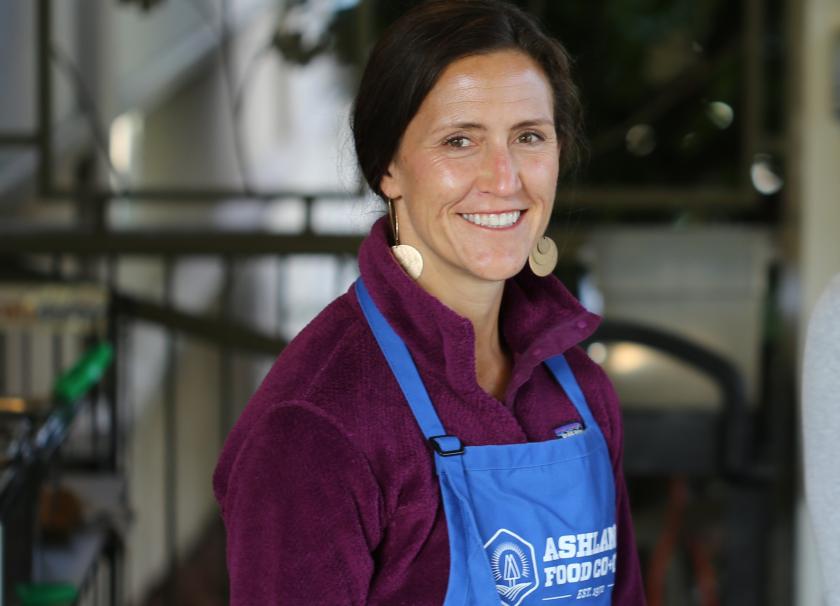
Lisa Beam: Why I'm a Board Member
Why serve on the Board of Directors at the Ashland Food Coop? This was the question that I was faced with about a year ago.
I have lived, worked and shopped in Ashland for the last 20 years. Many of those years I have actively participated on non-profit boards, civic organizations and committees. However, in the last few years I stepped away from those responsibilities to focus on family and business life.
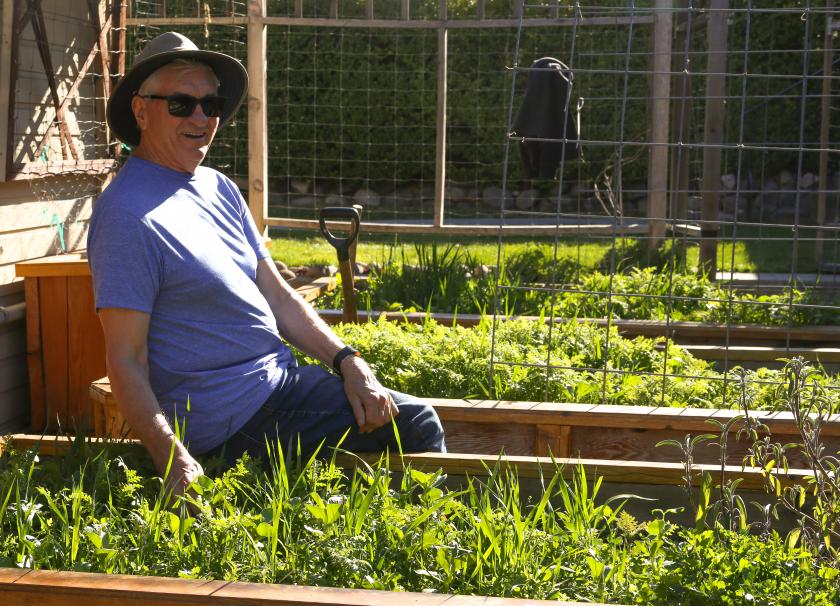
Henry in the Garden: The Pollinator Plan
By Henry Herting, Co-op garden volunteer
It's that fun time of the year when we get to plan our gardens. This year since our pollinators are taking such a hard hit, we are planning a pollinator garden.
Some plants that are considered good for pollinators are not so good fo the gardeners. They are invasive; they are weeds. Nobody likes weeds in their garden - who likes getting down on their knee pads and clawing at deep-rooted weeds growing in places where you don't want them?

Rogue To Go at the Co-op
We are excited to announce the official launch of Rogue To Go at the Ashland Food Co-op!
Rogue To Go is a reusable container pilot program. The pilot connects five participating restaurants by offering a reusable container that can be used for meals to-go and help eliminate single-use boxes. These O2GO containers are made locally in Bend, Oregon by OZZI. The bright green containers are 100% recyclable through a specialty recycler - truly zero waste!
How can you start using Rogue To Go? Check out the steps below and follow along with a walk-through video.
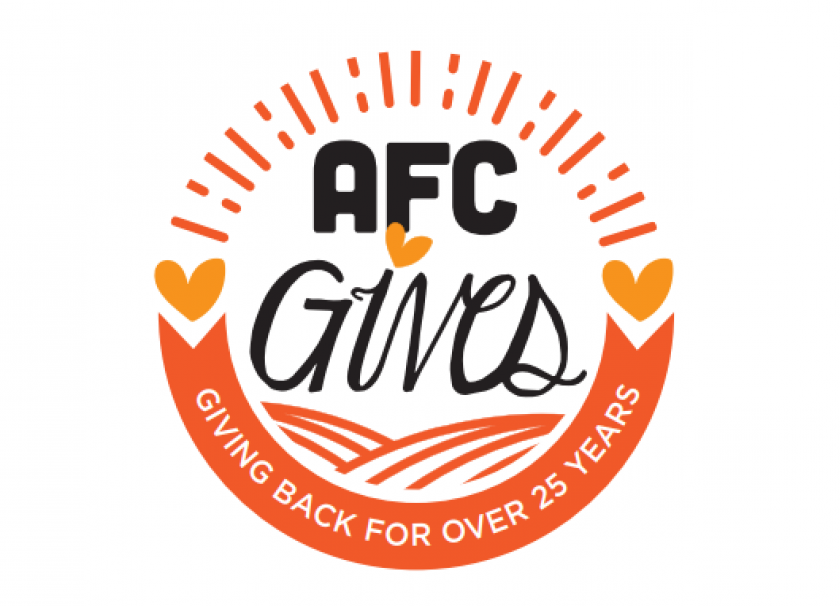
Apply for an AFC Gives community grant
For over 25 years, the Ashland Food Co-op has been re-investing in the local community by awarding grants to non-profit organizations doing important work in the Rogue Valley. Putting the seventh cooperative principle, "concern for community," into action, over $30,000 was donated in 2019 - and in 2020, there are even more opportunities for non-profits.
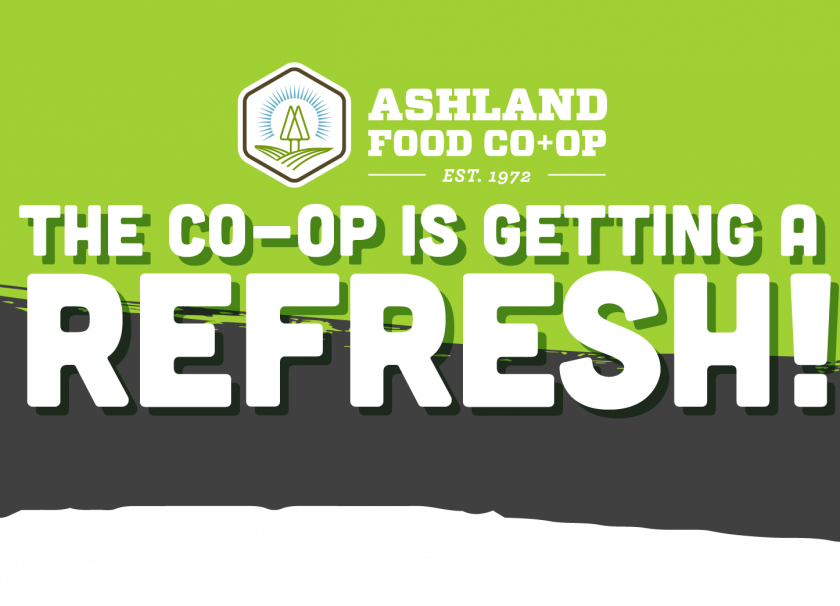
The Co-op is getting a refresh
We are giving our store a much-needed fresh coat of paint. We think you'll enjoy the changes!
When
The painting team will begin our project on February 5th, 2020 with a start time of 9pm.
Where
The entire retail store, deli serving area and interior seating area will receive a fresh new coat of paint.
Timeline
If all goes as planned, our painting project should be finished by February 20.
Will Store Hours Change?
No. We will be painting from 9pm to 5am.
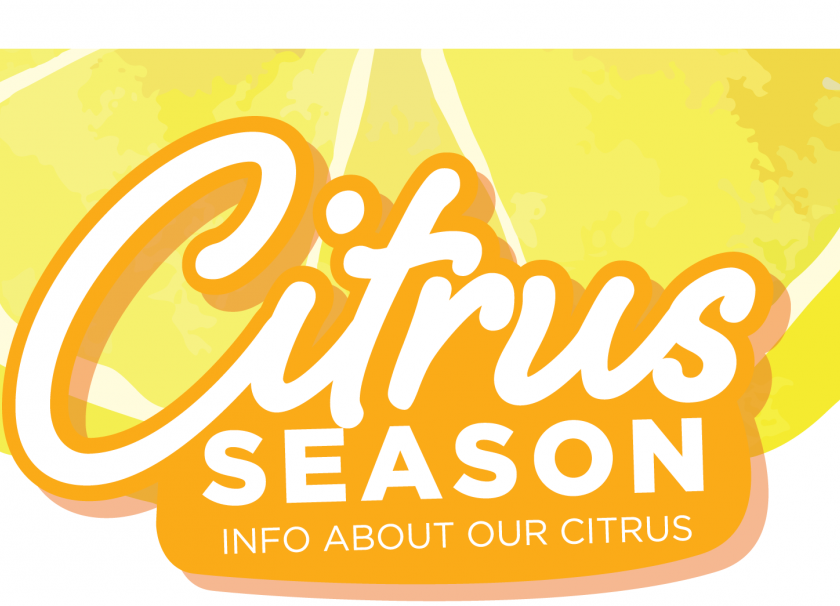
Explore citrus!
Looking to explore some new citrus varieties? Know more before you go! Check out the many types of sweet, sour and somewhere in between that you can enjoy at the Co-op! (Availability may vary due to seasonality.)
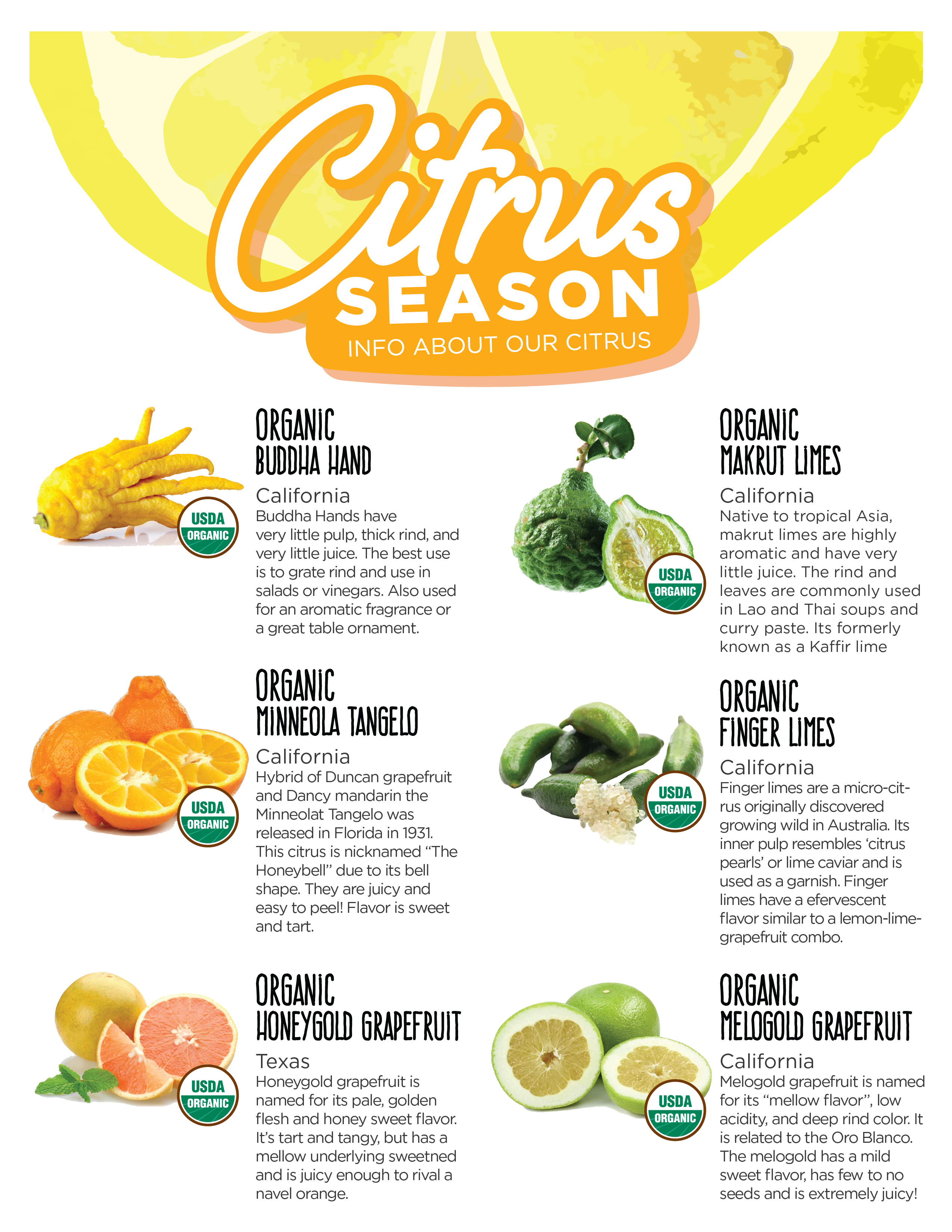
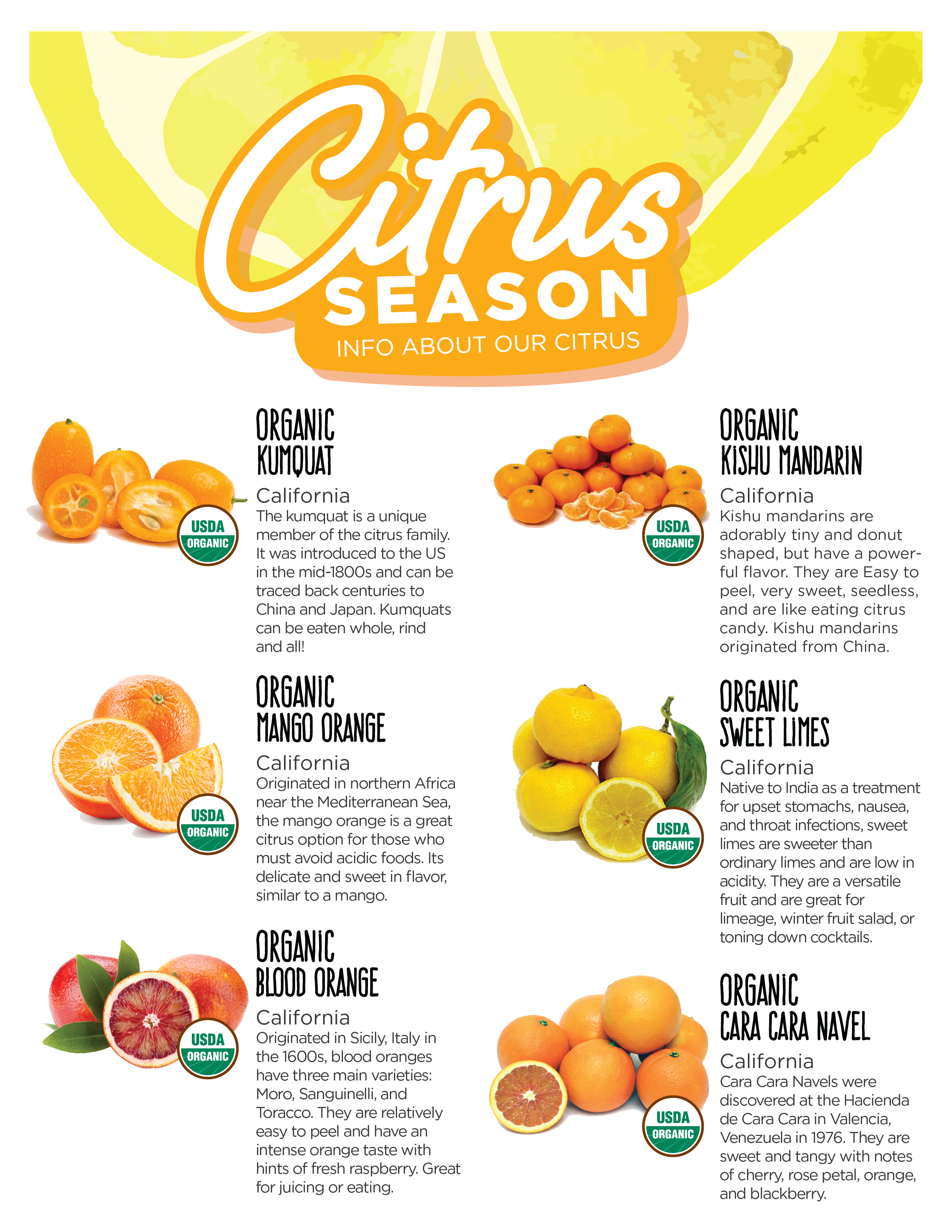
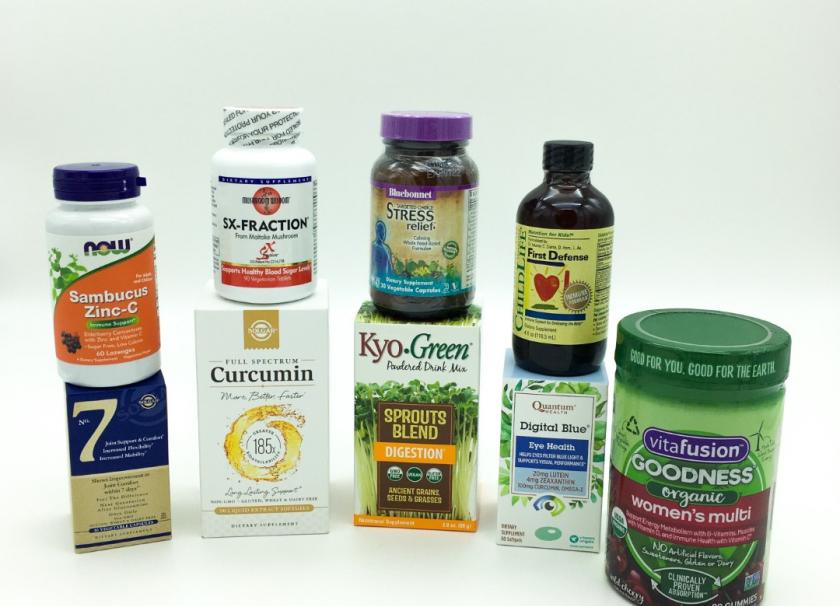
Taste for Life winter wellness giveaway
It's a month of giveaways from Taste for Life!
Giveaway #1 has finished up - so it's time for #2! This giveaway runs 1/27-2/2, so sign up below.
This package includes: NOW's Sabucus Zinc-C lozenges, Mushroom Wisdom's SX-Fraction, Bluebonnet's Stress Release formula, ChildLife's First Defense immune formula, Vitafusion's Organic Women's Multi vitamin, Quantum Health's Eye Health supplement, Kyo-Green Sprouts Blend digestion supplement, Solgar's full spectrum Curcumin supplement, and Solgar's No. 7 joint comfort supplement.

Rogue Co-ops College Scholarship
As part of the Rogue Co-ops, a group of Rogue Valley cooperative businesses that includes Ashland Food Co-op, Grange Co-op, Medford Food Co-op, and Rogue Credit Union, we're excited to offer a scholarship opportunity to local high school students planning on attending college.
The Rogue Co-ops have collectively funded a $2,000 scholarship (and Grange Co-op offers an additional eight $1,500 scholarships) for students (in public, private or home school settings) who meet the following requirements:

Become an Owner-Volunteer with the AFC Board
The AFC Board of Directors is looking for owner-volunteers for three board committees: the Owner Engagement Committee (OEC), Board Development Committee (BDC), and AFC Gives Committee.
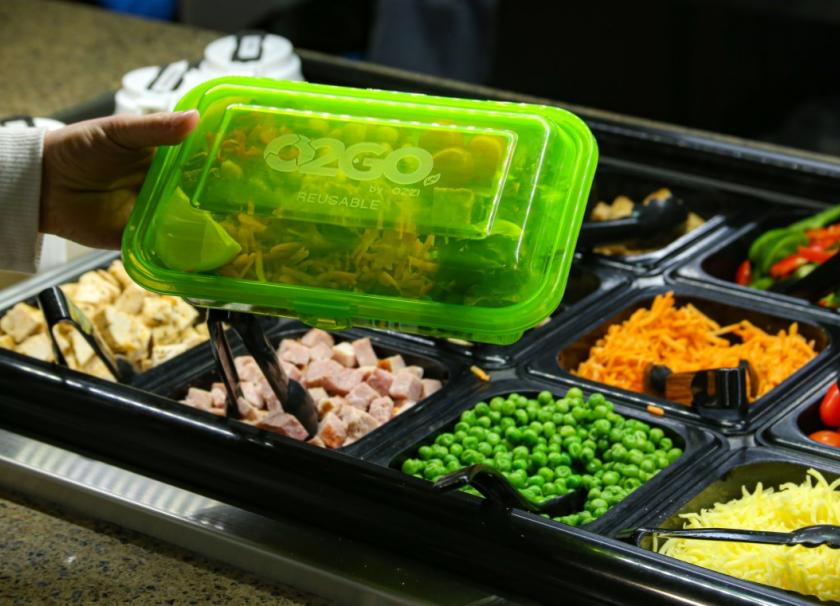
Sustainability Update: Building on a Strong Foundation
Sustainability Update
Our team has been working on many different projects throughout the year, taking great steps to fulfill our four sustainability goals. Our four goals to achieve by 2030 are: carbon neutrality, zero waste, eliminating toxic chemicals, and being a leader in our sustainable community. We look forward to our sustainable success in the upcoming decade!

2020: A vision for the future through Co-ops and local food
As the 2010s come to a close, the “20/20” eyesight analogy couldn’t be more appropriate for the new decade. With our eye on the future, there’s clearly a sense of urgency and awareness of the unique times we’re living in: a changing climate, increases in costs of living, and the shared pressures of a globalized world.
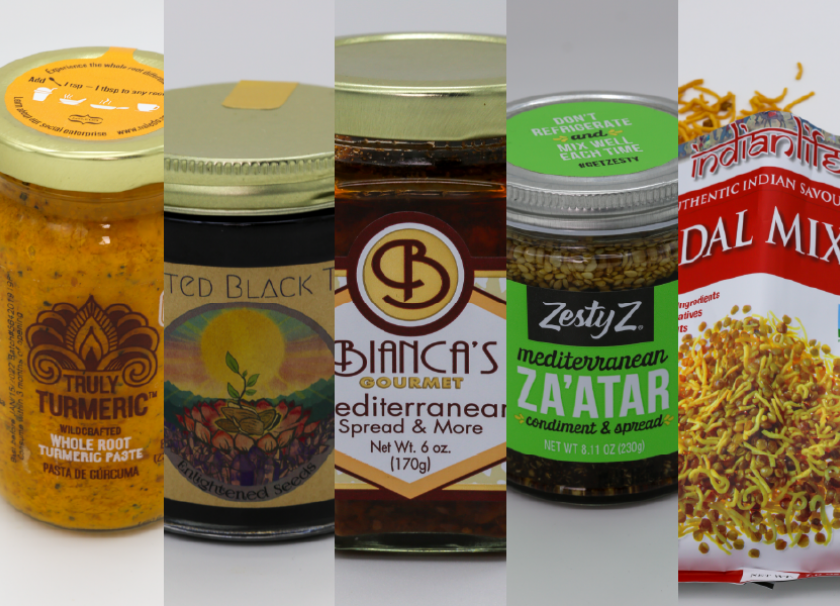
5 Items to Try: Spreads, Condiments & Snacks
It's fun trying new things! Here are five items you can find at the Co-op with a distinctly international flavor. Whether you're spreading them on some bread or naan, mixing up a salad dressing, or just want something salty and crunchy to snack on, try these out next time you want to elevate your dishes.
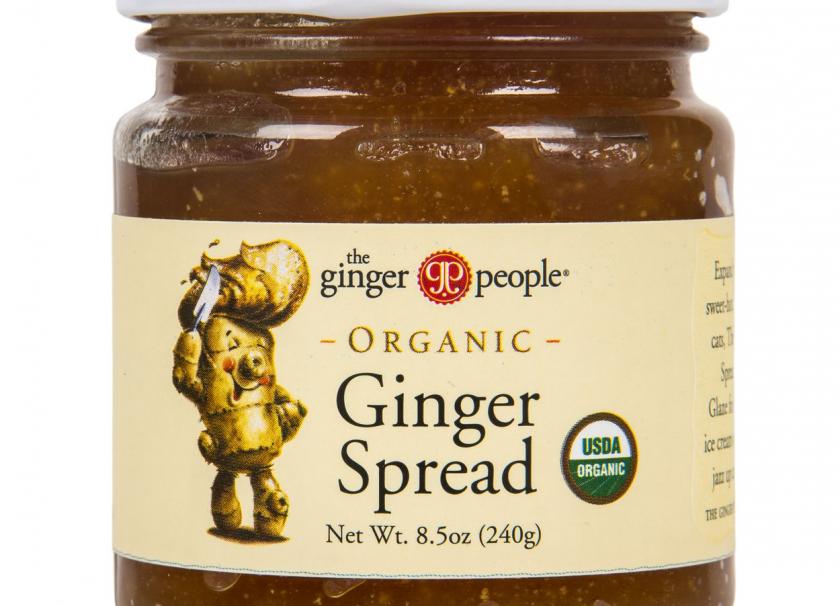
10 Ways to Enjoy: Ginger Spread
Sometimes you might come across a product at the Co-op and ask, "That looks good, but how in the heck can I use it in my cooking?" To answer that question, we picked this Ginger Spread made by The Ginger People (famous for their Gin-Gin candies). Grab a jar and try some of these unique applications in your own kitchen - or get inspired to utilize it in another way.
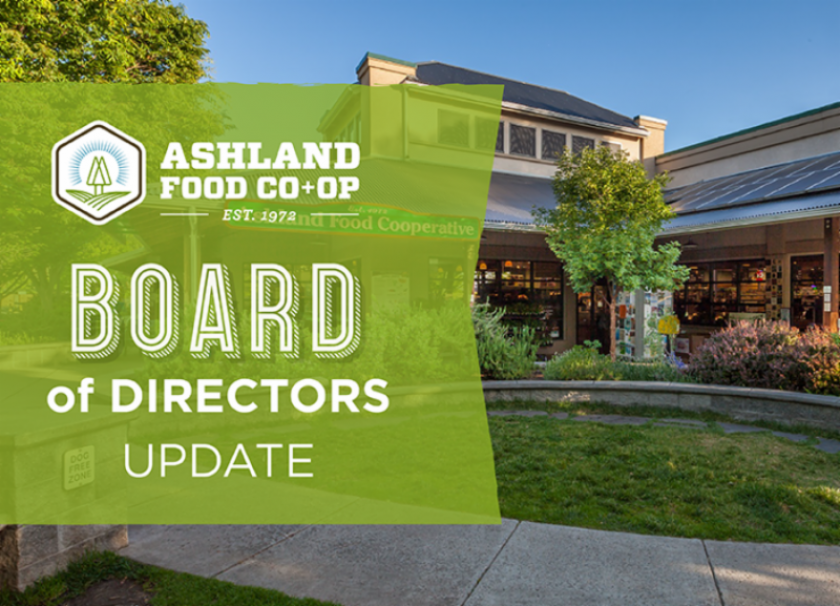
Meet Your Board: Melina Barker
Hello, Co-op members! My name is Melina Barker, and I joined the AFC Board of Directors this July. Since then, I have been busy learning about all the work the previous members have done to craft strategic goals to support the success of the AFC.
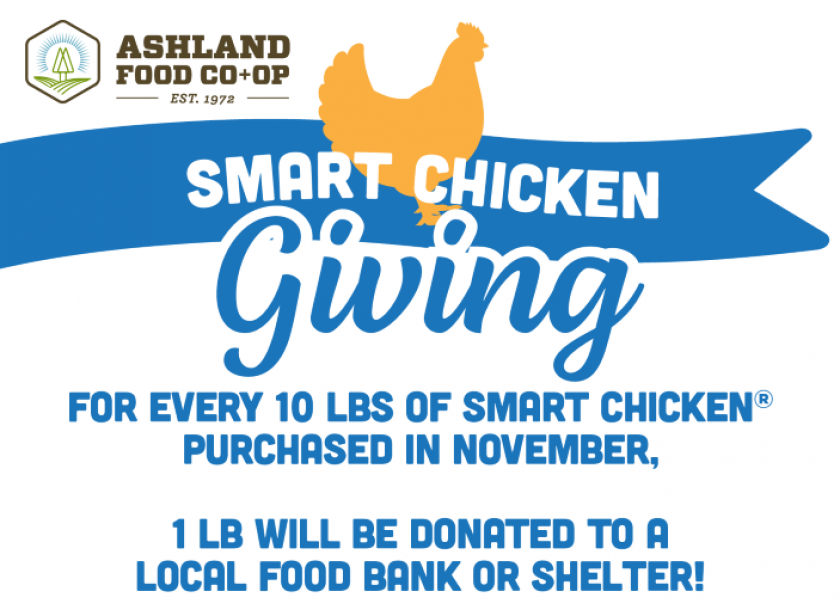
Smart Chicken® Holiday Giving in 2019
During the month of November, Co-op shoppers can nourish their own families and help fight hunger in the Rogue Valley.
Over the years, Smart Chicken® and Ashland Food Co-op have teamed up to donate thousands of pounds of chicken to ACCESS. Smart Chicken® will once again donate Smart Chicken® products based on the total volume that shoppers purchase at Ashland Food Co-op to ACCESS.
